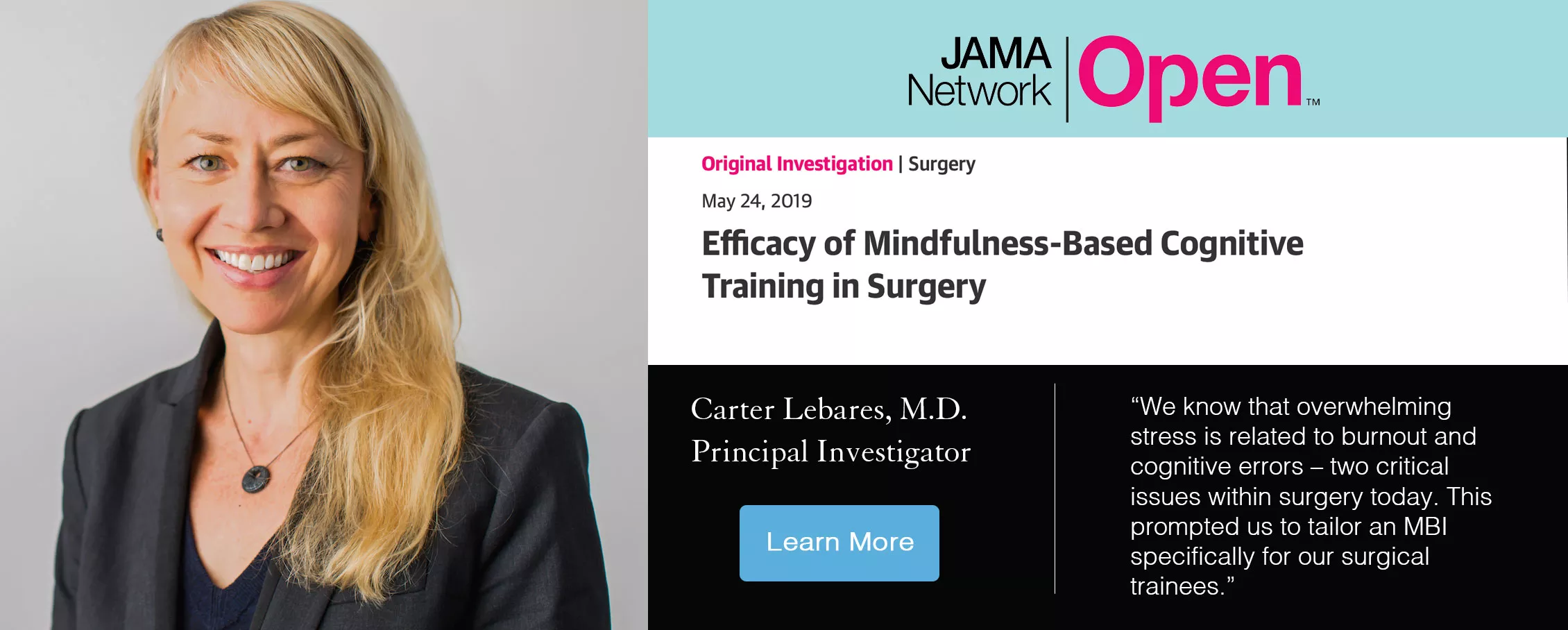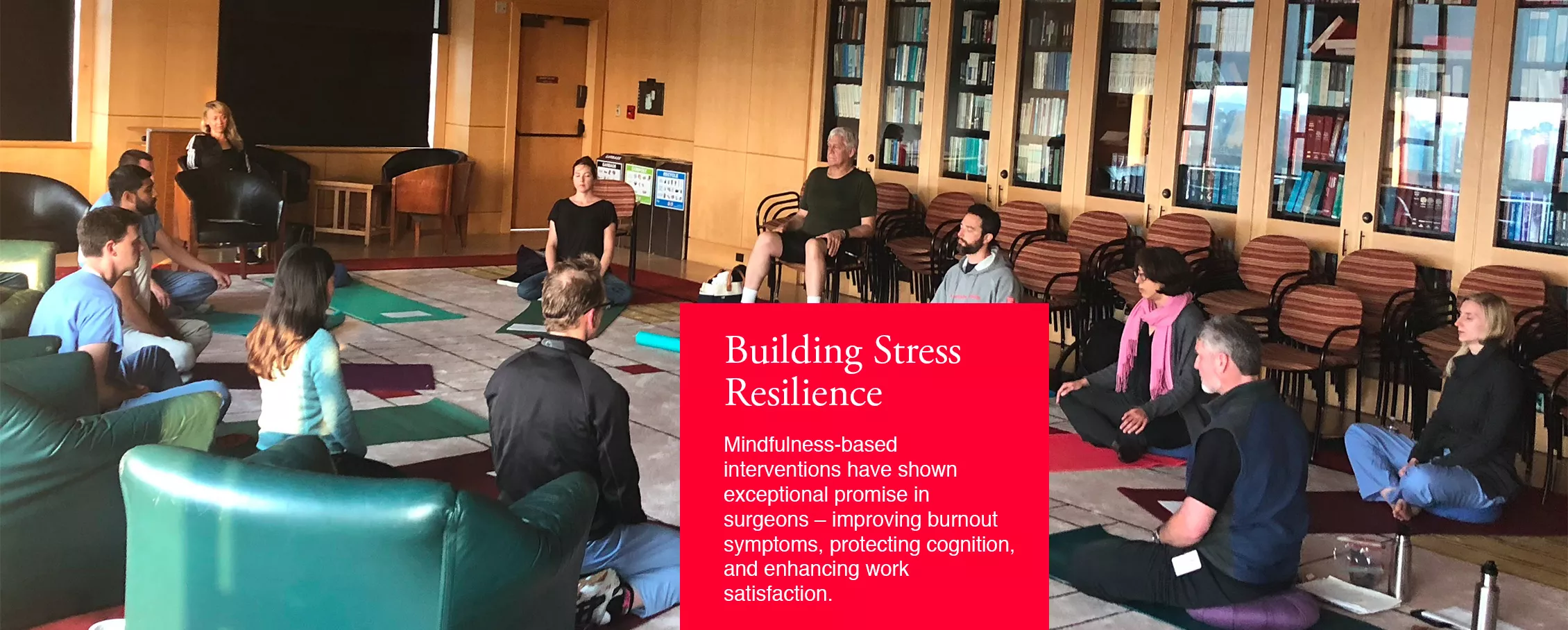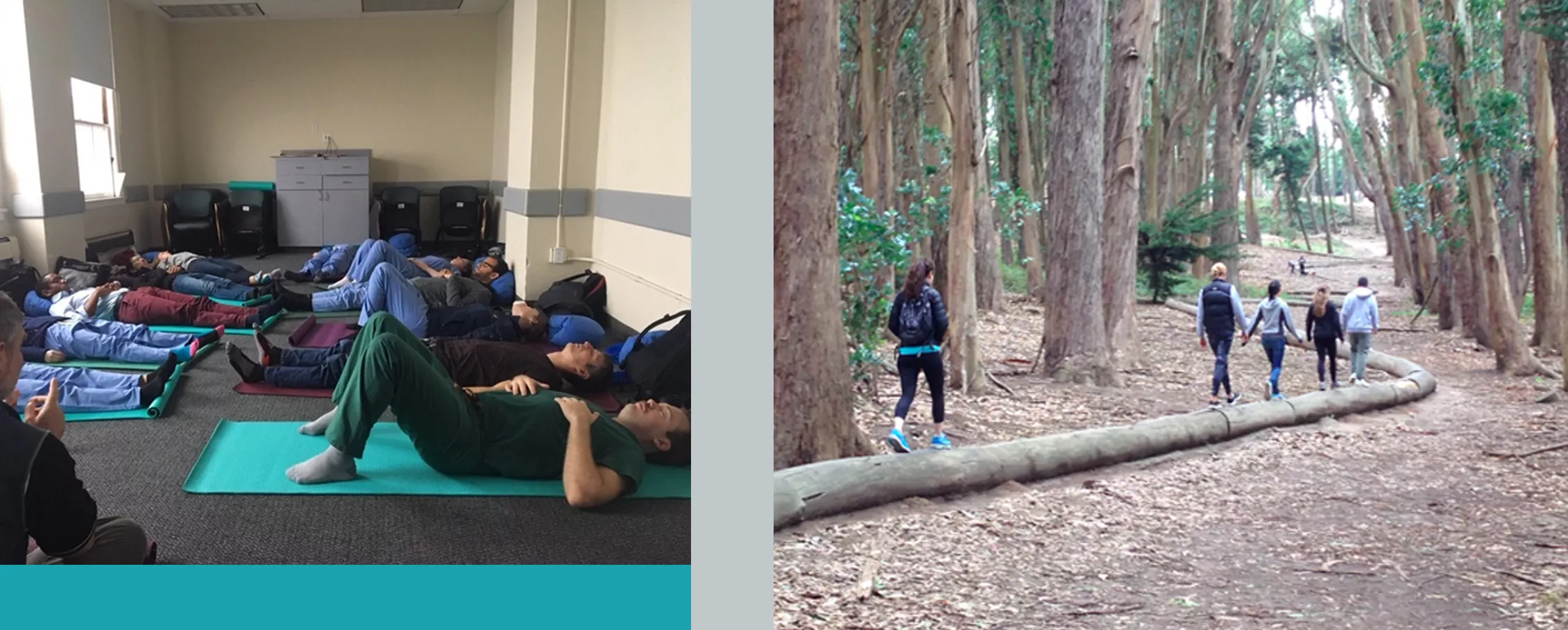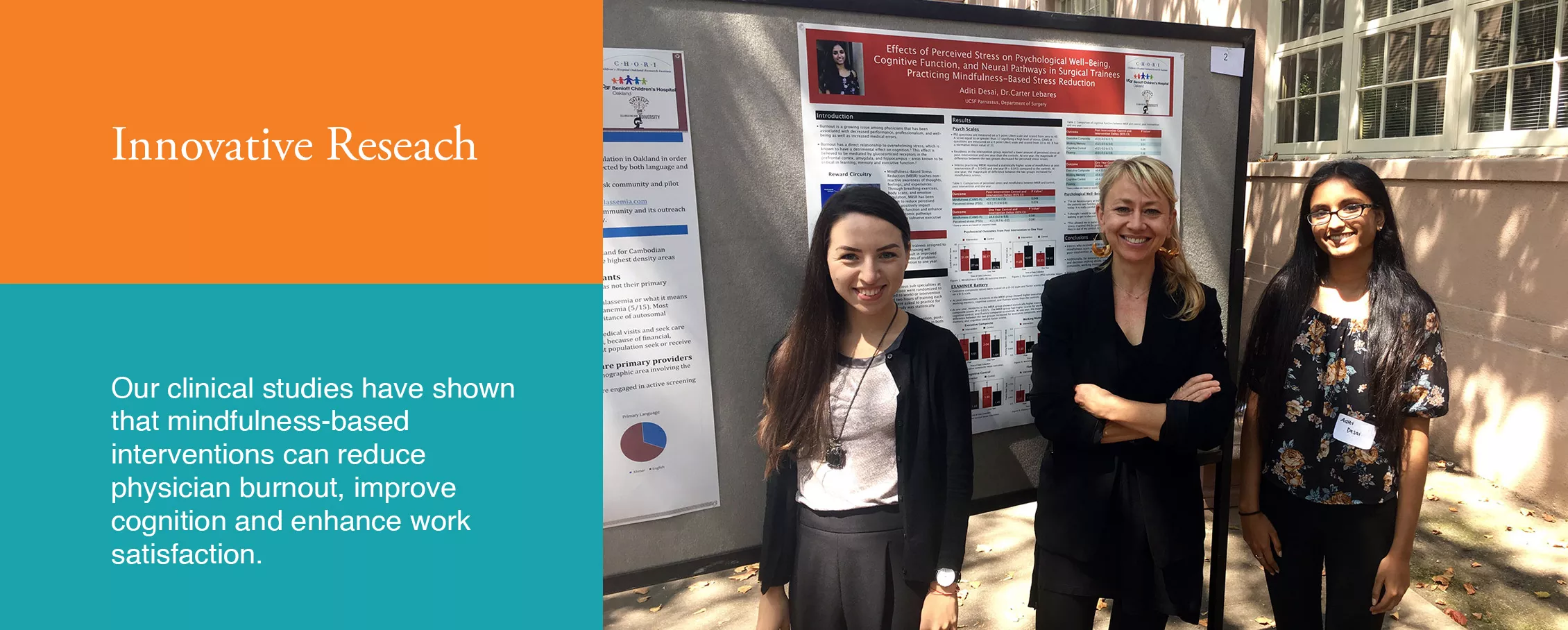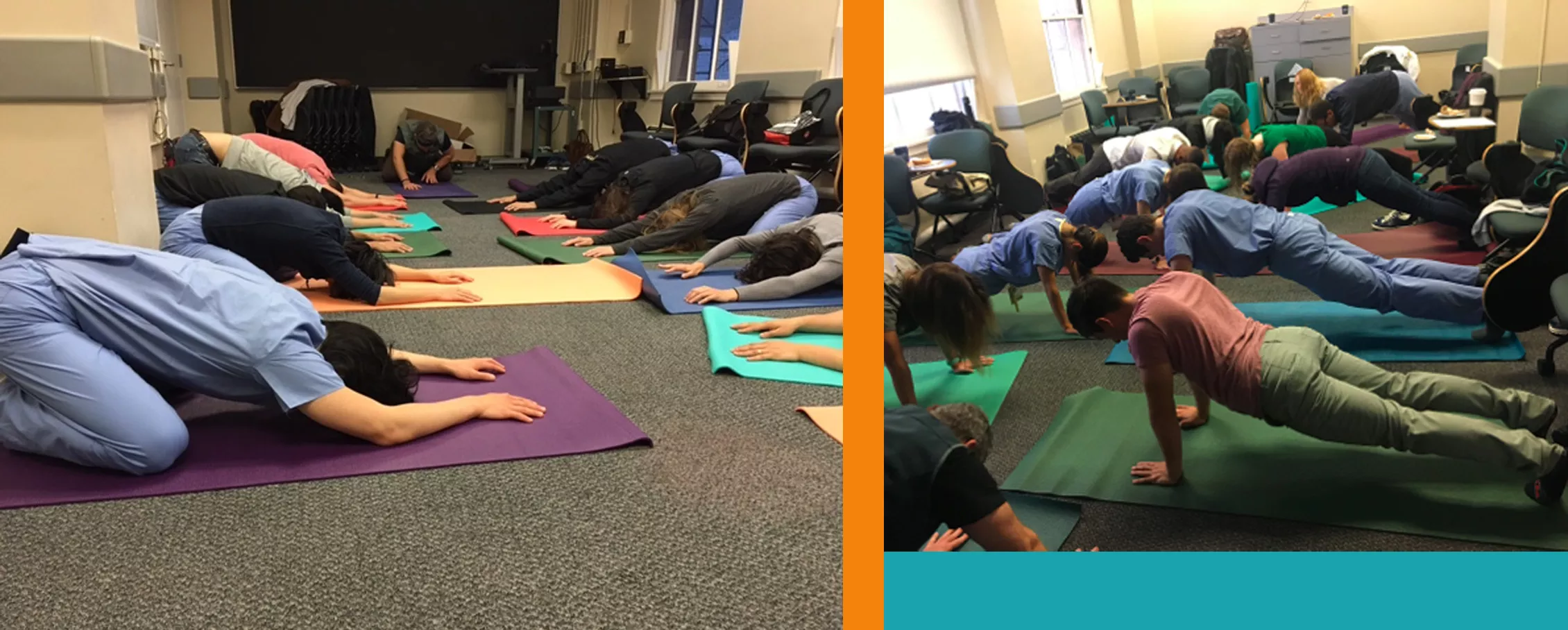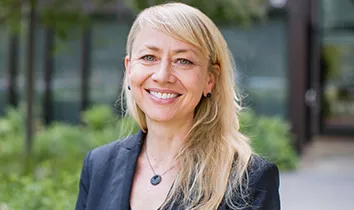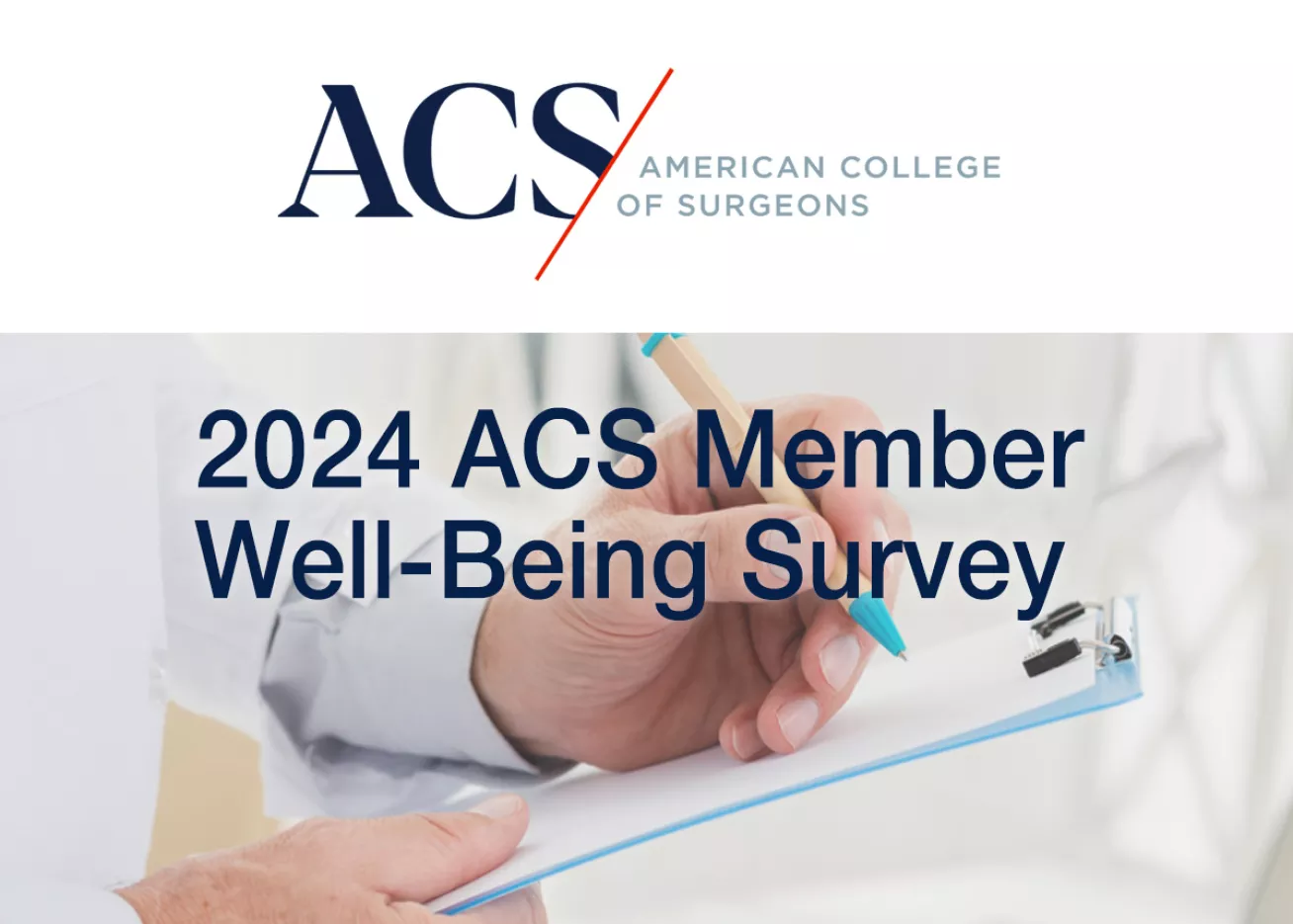Center for Mindfulness in Surgery - Homepage
Lebares Reslience Lab
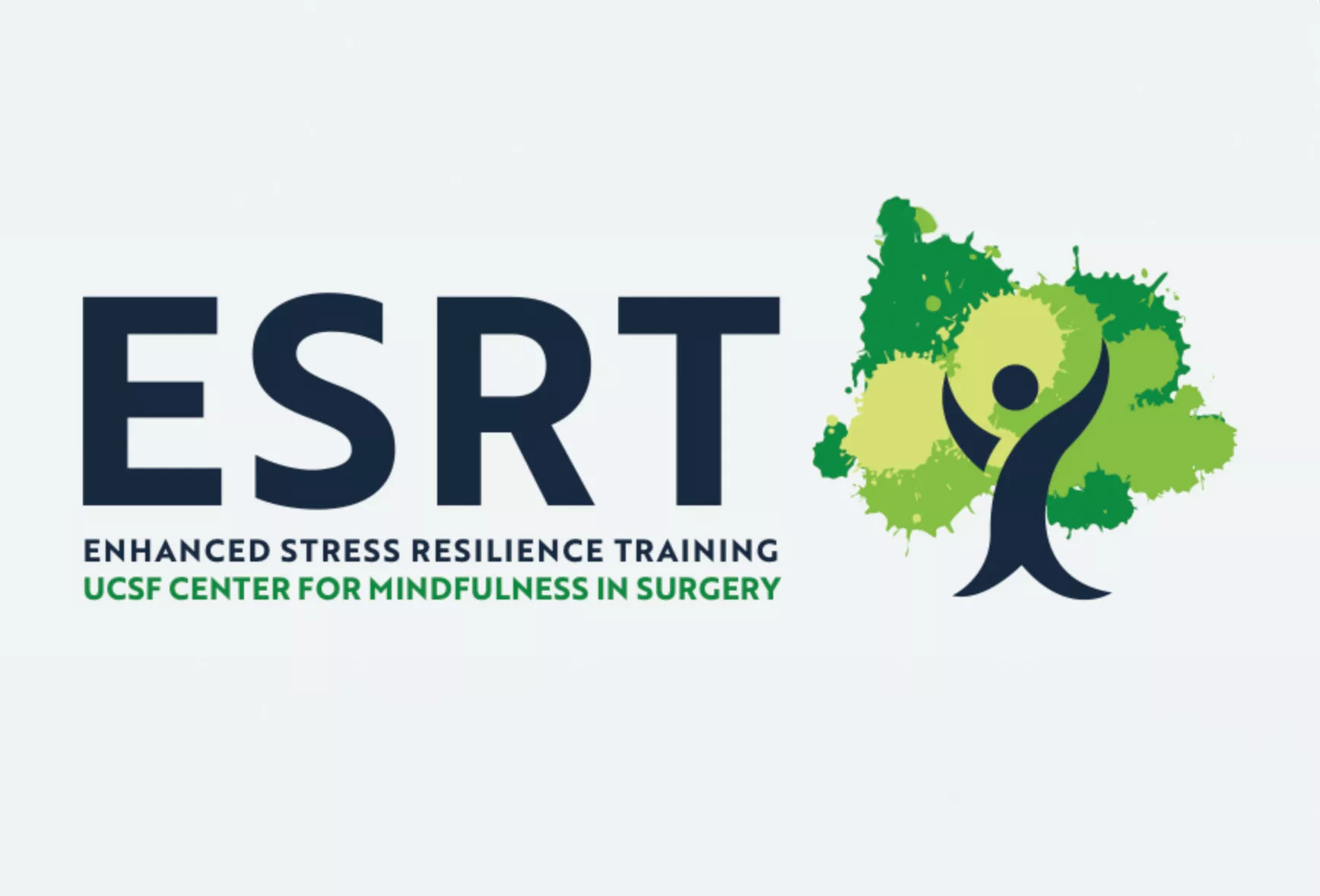
At the Lebares Resilience Lab, our mission is to unlock human potential across all aspects of life by enhancing resilience in operative, clinical, and personal settings. We focus on the Science of Surgeon Wellbeing in three primary ways:
- Developing tailored interventions using a human-centered design approach to boost resilience
- Employing national datasets and mixed-methods research to identify workplace factors that can be targeted for change
- Applying implementation science best practices to promote wellbeing on both national and international scales
Remote Enhanced Stress Resilience Training (ESRT) During COVID-19
We are now offering our 5-week course in mindfulness-based cognitive training on Zoom Teleconference
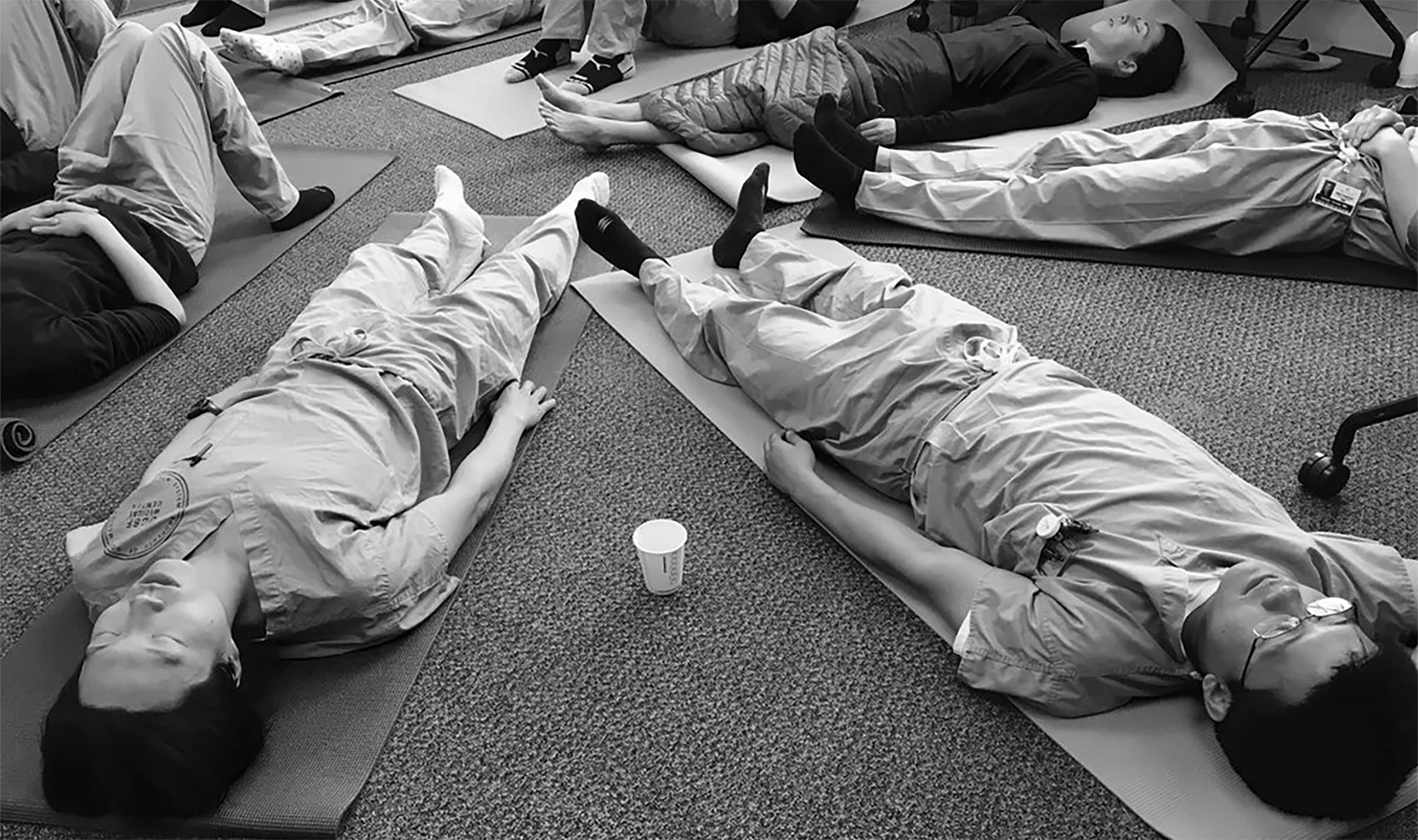
News & Events
Featured News
Latest News

